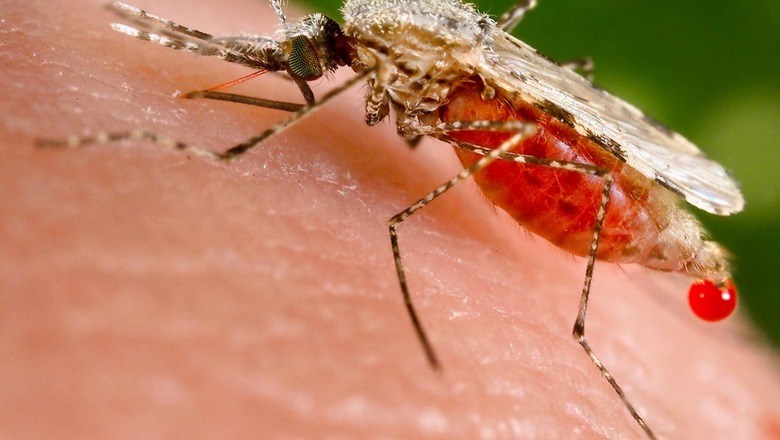
views
Researchers at Jawaharlal Nehru University have repurposed medication used for hepatitis C to treat a drug-resistant strain of malaria.
According to a study published in the journal, Antimicrobial Agents and Chemotherapy, the emergence of resistance to “plasmodium falciparum” raises an urgent need to find new antimalarial drugs.
The Centers for Disease Control and Prevention (CDC) in the US explains plasmodium falciparum (P. falciparum) as the type of malaria, which often progresses to severe and potentially life-threatening forms. This parasite is very common in many African countries, south of the Sahara desert.
“People who are heavily exposed to the bites of mosquitoes infected with P. falciparum are most at risk of dying from malaria,” as stated on the CDC website.
Globally, the CDC said, the World Health Organization estimates that in 2020, 241 million clinical cases of malaria occurred, and 6,27,000 people died of the mosquito-borne disease and, most of them, children in Africa.
The breakthrough study – conducted by 22 researchers mostly from JNU, and also from Shiv Nadar University as well as Washington University – supports the hypothesis that targeting resistance mechanisms is a viable approach to dealing with the drug-resistant parasite.
“We report the rational repurposing of the anti-hepatitis C virus drug called alisporivir, a non-immunosuppressive analogue of cyclosporin A, against artemisinin-resistant strains of P. falciparum,” stated the study published on November 14.
“In silico docking studies and molecular dynamic simulation predicted strong interaction of alisporivir with PfCyclophilin 19B, confirmed through biophysical assays with a Kd value of 354.3 nM,” the study stated in scientific terms.
“Alisporivir showed potent antimalarial activity against chloroquine-resistant (PfRKL-9 with resistance index [Ri] 2.14 ± 0.23) and artemisinin-resistant (PfKelch13R539T with Ri 1.15 ± 0.04) parasites,” it said.
The research has infused healthcare experts with optimism. “This step will aid the fight against malaria,” said Pratik Kumar, country director of Malaria No More, India.
Malaria No More is a Washington-based not-for-profit organisation, which is working with state and central governments in ensuring that India becomes free of malaria by 2030, as announced by Prime Minister Narendra Modi at the East Asia Summit held in Malaysia in 2015.
“The battle for malaria elimination will be won through effective public-private partnerships. We must strive for greater private sector participation in monitoring, reporting and controlling malaria, using the latest innovations in data, diagnostics, treatment and vector control,” Kumar said.
He added: “Stakeholders from sectors other than health must also come together to devise and implement malaria control regimes.”
Read all the Latest India News here



















Comments
0 comment